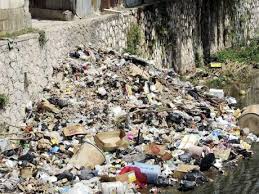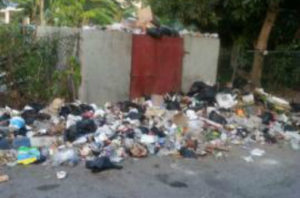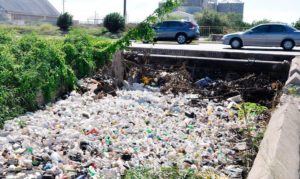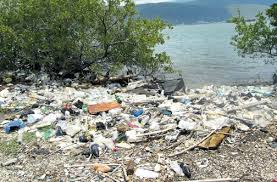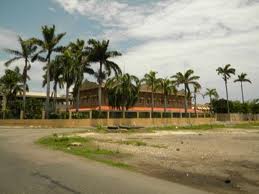PUBLISHED IN THE GLEANER SEPT 14 2014
http://jamaica-gleaner.com/gleaner/20140914/focus/focus6.html
Kelly McIntosh, Guest Columnist
“Hard work they had left behind with slavery.” These were the words of no less a person than former Singapore Prime Minister Lee Kuan Yew, the man credited with transforming the fortunes and future of tiny Singapore. He made this observation about us as a people, during a visit to our island back in 1975.
We have heard time and again that Jamaica’s problem is low productivity, a sentiment underscored by a now well-known statement made popular on talk radio some years ago: “One Chiney can do five smaddy wuk.”
Productivity is defined as the effective and efficient use of resources (labour, capital, material, energy) in the production and supply of quality goods or services. So essentially, productivity measures how well we convert our resources into goods or services.
The Jamaica Productivity Summary Report 1972-2007 paints a damning picture of productivity in Jamaica. Apparently, labour productivity in Jamaica has been declining at an average annual rate of 1.3 per cent over the period 1973-2007. This is made worse by the reality that during 2003-2007, the decline increased to 1.8 per cent per year.
When we compare our situation to our Caribbean neighbours, it gets even worse. Over the same period, Trinidad & Tobago saw its labour productivity increase by an average of 1.5 per cent per year. By 2007, the productivity of a St Lucian worker was 1.6 times that of a Jamaican worker. The report ended with a very gloomy forecast of decreasing productivity going forward in Jamaica.
So was Lee Kuan Yew right? Did the talk-show caller speak truth? And what do the labour-productivity numbers really mean? Consider some other numbers as we seek to wrap our heads around this issue of productivity. The Economic and Social Survey of Jamaica 2013 shows that the number of reported industrial disputes increased in 2012 by 33 per cent. In 2012, the manufacturing sector reported the greatest number of man days lost because of industrial disputes relative to other sectors.
Turn your attention now to remittances. Gross remittance inflows in April 2014 were US$183.3 million, the highest on record. To further put the importance of remittances into perspective, consider that in 2011 they contributed 15 per cent to GDP, compared to tourism, which contributed under 10 per cent to GDP. These remittances, by and large, come from Jamaicans working overseas, especially in the USA.
So far, I’ve cited declined productivity numbers, drawn attention to our industrial relations climate, and cited the importance of money, which is generated outside of Jamaica, by Jamaicans and sent back to the island – three seemingly disparate issues. I now turn my mind to some personal observations that I will seek to link to productivity statistics, industrial relations climate and remittance inflows.
THE HANDCART LADY ON CHRISTMAS EVE
I remember one Christmas Eve I was making my way home in heavy traffic with my children. It was after 7 p.m. The light had just changed to green. Slowly making her way across the road, preventing me from moving on was a woman pushing a heavily laden cart with produce. She strained and pushed wearily, obviously heading home from selling all day. I wonder what conclusions we can draw about productivity in this instance.
CLEANING UP WINNIFRED BEACH
We were at Winnifred Beach in Portland two weeks ago. It was a Tuesday and very few people were there. We drove up and cautiously exited the vehicle. No one rushed to us, trying to hustle us for money. We walked from food stall to food stall, with no one harassing us, eventually made our dining decision and went to wait on the beach itself. A man and a woman were silently working, raking up seaweed, boxing it, and disposing of it some metres away. They were sweating in the Portland sun.
I knew that this was a public beach, not yet controlled by UDC, and I could stand it no longer. I went up to the man and asked him: “Who is paying you to clean up the beach?” He replied with quiet dignity: “We make our living on this beach, and it is therefore our responsibility to keep it clean.” I wonder what conclusions we can draw about productivity in this instance.
BOWDEN PEN FARMERS’ ASSOCIATION
We’re still in the parish of Portland. But now we’ve ascended into the interior of the parish, up in the John Crow Mountains. There is an eco-tourism outfit called Ambasabeth Cabins. Ambasabeth is 100 per cent powered by the sun, and watered from nearby rivers. Income is supplemented from farming, mostly ginger. The association is a community group, a cooperative that is largely run by women, complete with a mission and vision, supported with a 10-year plan. Formal management meetings are held, books are maintained, plans are formulated, implemented and reviewed. What conclusions can we draw about productivity in this instance?
LINKING IT ALL TO PRODUCTIVITY
The numbers indicate that productivity in Jamaica is indeed low. Yet Jamaicans are able to, in another context, generate income, live overseas from that income, and still send part of that income back to Jamaica, such that these inflows sent from overseas are the single largest contributor to our GDP. Why is that?
There are examples of small groups of people and select individuals in the island who exhibit a strong work ethic and who make a living. What makes these people different from their brothers and sisters who operate in a more formal, corporate or production setting in terms of their attitude and output?
Perhaps there is something about our Jamaican context that does not encourage productivity. Perhaps the ways that we have chosen to reward and incentivise labour, and manage labour relations in industry, do not encourage productivity. It is not coincidental that as labour productivity in Jamaica declined, so too did the real wage of workers in Jamaica (it fell by 1.2% between 1973 and 2007).
Basing the success of any enterprise on the inherent goodness and morality of the individual is not as sensible as basing success on sound and robust policies, systems and procedures. So in formal work settings where the worker knows that employers will find it difficult to sanction for lateness, absenteeism and so on, how will overall productivity be affected? What is the incentive for the worker to turn up and show up on any given day?
In private enterprise, when incentive schemes do not exist, and where they do exist on paper, do not in reality incentivise performance, how will this affect productivity?
We all know that the same worker that was repeatedly late for one job here in Jamaica will go overseas and show up on time for not one, but two and sometimes three jobs! The context overseas does not tolerate lateness and the worker knows this and conforms.
The citizens on Winnifred Beach have concluded that they benefit directly from having a clean beach. Patrons enjoying a clean beach environment will hang out there and more than likely buy food and drinks from them. There is an incentive that redounds directly to them if they keep the beach clean.
The Bowden Pen Farmers’ Association has discovered the dignity and independence that comes with owning and controlling the means of their subsistence. Largely independent of the system and the largesse of politicians, these farming folk plan and produce because they have discovered that their prosperity is directly proportional to the effort they put in.
The driving motivation behind Jamaicans generating money overseas, behind the workers on Winnifred Beach and behind the members of the Bowden Pen association is an inherent belief in the value of work, illustrated by the woman pushing the handcart on Christmas Eve.
Perhaps we could change the productivity metrics by changing the Jamaican context to one that leverages our natural propensity for work by incentivising and rewarding labour, while making no excuse for indiscipline. Shifting the paradigm in Jamaica to one which rewards productivity and sanctions indiscipline can happen, but this comes through effective leadership having a vision of what a productive Jamaica actually looks like, modelling the appropriate behaviours, and implementing sound public policy in support of this vision of a new Jamaica.
Kelly McIntosh is operations manager of a major food-export company. Email feedback to columns@gleanerjm.com and kkmac218@gmail.com. Follow Kelly’s blog at kellykatharin.blogspot.com.

